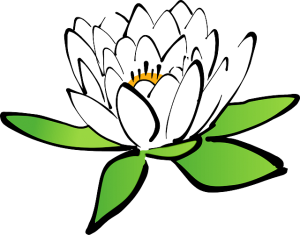One of my projects-in-progress is a review of Nichiren Daishonin’s gosho to women. Nichiren was a Buddhist monk who came of age in 13th century Japan, and a gosho is an honorable writing (go is an honorific prefix and sho means writings).
Nichiren wrote many letters and treatises in his lifetime, and the extant among them were translated and published with background about the recipient when it was known. English versions of his writings are in two volumes published by the Soka Gakkai International: Writings of Nichiren Daishonin Vol 1 and Vol 2.
 Over the course of several years, I read all of the writings in volume 1 in chronological order. I thought it would be an interesting project to reread them in a new way, through a different lens. For instance, I know some people who have undertaken the study of all writings to Shijo Kingo, a samurai and physician, and arguably one of Nichiren’s greatest disciples.
Over the course of several years, I read all of the writings in volume 1 in chronological order. I thought it would be an interesting project to reread them in a new way, through a different lens. For instance, I know some people who have undertaken the study of all writings to Shijo Kingo, a samurai and physician, and arguably one of Nichiren’s greatest disciples.
What can you learn about the practice of Buddhism and finding happiness in this world viewed through Nichiren’s encouragement to this one man? He received quite a few letters, and through them we learn about mastering your anger (Kingo has a famous temper); doing your best at work, even when your co-workers gossip about you (Kingo served Lord Ema and almost lost his estate due to this very thing); the importance of perseverance, and other timeless lessons.
A woman who embraces the lion king of the Lotus Sutra never fears any of the beasts of hell or of the realms of hungry spirits and animals. ~Nichiren, The Drum at the Gate of Thunder
At a time and place when women were considered inferior to men, and indeed, were sometimes thought incapable of attaining enlightenment at all without first being reborn as men, Nichiren was decidedly more feminist. Basing his teachings on the Lotus Sutra, which celebrates the limitless potential inherent in all living beings, Nichiren praised women for their steadfast faith, and encouraged them with the same life-affirming wisdom he shared with men of the time.
All of the offenses committed by a woman in her lifetime are like dry grass, and the single character myo of the Lotus Sutra is like a small spark. When a small spark is set to a large expanse of grass, not only the grass but also the big trees and large stones will all be consumed. Such is the power of fire of wisdom in the single character myo. Not only will all offenses vanish but they will become sources of benefit. ~Nichiren, The Drum at the Gate of Thunder
Today I read The Drum at the Gate of Thunder, written to the lay nun Sennichi. This gosho is one of 46 written to women included in volume 1. Some women received multiple letters – Sennichi received five as did Shijo Kingo’s wife, Nichigen-nyo. I may share some of my notes as I work through the gosho.
Someday let us meet at Eagle Peak, where Shakyamuni Buddha dwells. Nam-myoho-renge-kyo, Nam-myoho-renge-kyo. With my deep respect, Nichiren. ~Nichiren, The Drum at the Gate of Thunder
